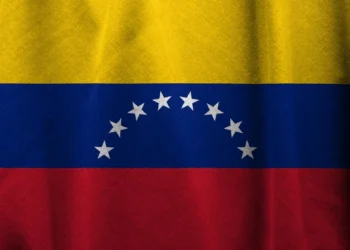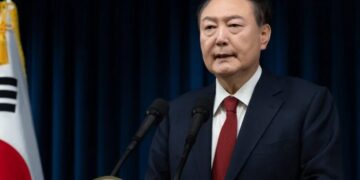The South Korean government’s probe into alleged human rights violations during the US raid on a Georgian electric vehicle battery plant is calling into question the terms of an alliance that has, for decades, favored US interests.
The incident is a case study of how the Trump administration’s aggressive immigration policies are not just a domestic issue, but a direct threat to global economic partnerships and a violation of the shared values that define our alliances.
The raid on the Hyundai-operated plant, which resulted in the detention and alleged mistreatment of hundreds of South Korean workers, was an embarrassment to the South Korean government, especially as it was coming just after a major trade deal where South Korea pledged to invest billions in the US.

The optics of federal agents, with armored vehicles and a shocking show of force, treating skilled workers like criminals understandably caused outrage in Seoul. While President Donald Trump offered a belated and hollow assurance that foreign workers are “welcome,” the damage has already been done. His administration’s US immigration raid has created a climate of fear that will inevitably discourage foreign investment and delay crucial projects, like the new electric vehicle plant, which are vital for US economic competitiveness. This is a betrayal of a key ally and a self-inflicted wound.
Why It Matters
The current US immigration policy, which treats skilled foreign workers as a threat, is not only counterproductive but also deeply insulting to countries like South Korea, which has been a steadfast ally for decades. The solution to amend the tense political ties at this juncture is to implement concrete policy changes.
The US must cease all militarized workplace raids and commit to a more humane and transparent immigration enforcement process. This includes establishing a clear, efficient visa system for skilled workers and experts. As South Korean President Lee Jae-myung pointed out, it’s a common practice for companies to send their employees to help set up overseas factories. The US government and its immigration authorities must acknowledge and facilitate this need, rather than criminalizing it.
Additionally, the South Korean government must use this incident to renegotiate the terms of its economic partnership with the US. Instead of simply investing in the US to avoid tariffs, Seoul should demand a legally binding guarantee that its workers and investments will be protected from aggressive and arbitrary enforcement.
The human rights violations probe is a crucial first step in this direction, as it puts a formal spotlight on the unacceptable behavior of US authorities. The future of this alliance depends on whether the US can prove it is a reliable partner that values collaboration over a politically motivated crackdown.
















